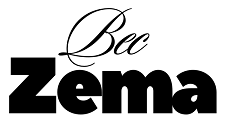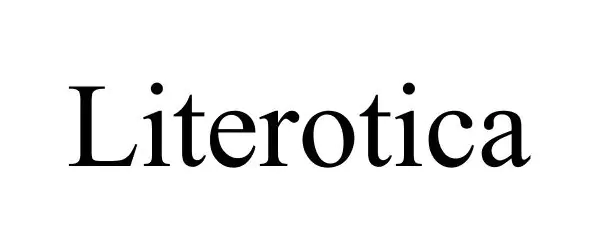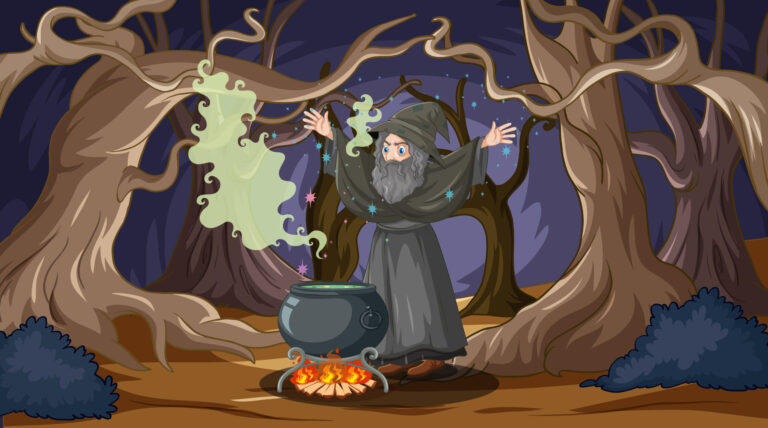Literotica: Understanding Adult Story Categories
When exploring adult literature online, understanding how content is organized becomes essential for finding exactly what you’re looking for. Literoticatags serve as a crucial navigation system that helps readers discover stories matching their preferences while allowing authors to categorize their work effectively. These tags function as digital bookmarks, making the vast world of adult fiction more accessible and organized.
The tagging system has evolved significantly over the years, transforming from simple categories to sophisticated classification methods. Modern platforms utilize literoticatags to create detailed taxonomies that cover everything from basic genres to specific themes, character types, and content warnings. This comprehensive approach ensures that both readers and writers can engage with content that aligns with their interests and boundaries.
Understanding these tags isn’t just about finding stories—it’s about navigating a complex digital ecosystem where content creators and consumers interact. Whether you’re a curious reader or an aspiring author, mastering the tag system opens doors to a more enriched and targeted experience in adult literature communities.
What Are Literotica Tags and Why They Matter
Literoticatags represent a sophisticated categorization system designed to organize adult fiction content across digital platforms. These tags function as metadata labels that describe various aspects of a story, including genre, themes, character demographics, relationship dynamics, and content intensity levels. Think of them as detailed filing labels that help organize a vast library of diverse content.
The importance of these tags extends beyond simple organization. They serve as communication tools between authors and readers, establishing clear expectations about story content before someone begins reading. This system helps prevent mismatched expectations and ensures that readers find content that genuinely interests them while respecting personal boundaries and preferences.
For content creators, literoticatags provide a way to reach their target audience effectively. By using appropriate tags, authors can ensure their work appears in relevant searches and reaches readers who are most likely to appreciate their particular style or subject matter. This targeted approach benefits both creators seeking readership and readers looking for specific types of content.
The tag system also serves important safety and consent functions within adult content communities. By clearly labeling content characteristics, tags help users make informed decisions about what they choose to read, supporting a culture of informed consent and personal agency in content consumption.
Types of Literotica Tags Explained
The world of literoticatags encompasses several distinct categories, each serving specific organizational purposes. Genre tags represent the broadest classification level, covering fundamental story types like romance, fantasy, science fiction, contemporary, and historical fiction. These primary tags help readers identify the basic story framework and setting.
Character demographic tags provide detailed information about the people featured in stories. These might include age ranges, physical characteristics, professions, cultural backgrounds, or personality traits. Such specific labeling helps readers find stories featuring characters they find appealing or relatable.
Relationship dynamic tags describe the interpersonal connections between characters. This category includes everything from traditional romantic pairings to complex relationship structures, power dynamics, and emotional connections. These tags help readers understand the social and emotional framework of stories before diving in.
Content intensity tags serve as important guideposts for readers seeking specific experience levels. These range from mild romantic content to more explicit material, allowing users to select stories that match their comfort level and preferences. This category often includes detailed sub-tags that specify particular activities or themes present in the content.
How to Use Literotica Tags Effectively
Mastering literoticatags requires understanding both search strategies and tag combinations. Effective tag usage begins with identifying your core interests and then expanding from there. Start with broad categories that appeal to you, then gradually narrow down using more specific tags to refine your search results.
Combining multiple tags creates powerful search filters that can help you discover highly targeted content. For example, you might combine genre tags with character demographic tags and relationship dynamic tags to find stories that match very specific criteria. This layered approach often yields better results than using single tags alone.
Understanding tag hierarchies also improves search effectiveness. Many platforms organize tags in parent-child relationships, where broader tags encompass more specific sub-tags. Learning these relationships helps you navigate the system more efficiently and discover related content you might not have considered initially.
Regular exploration of new tag combinations can lead to discovering content outside your usual preferences. Sometimes the most interesting discoveries come from experimenting with unfamiliar tags or combinations that push your boundaries in comfortable ways. This exploratory approach can broaden your reading horizons significantly.
Popular Literotica Tag Categories
Several literoticatags categories consistently rank among the most popular across platforms. Romance tags dominate many adult fiction sites, reflecting readers’ enduring interest in emotional connections and relationship development. These tags often combine with other categories to create rich, multi-layered story classifications.
Fantasy and science fiction tags represent another highly popular category, offering readers escape into imaginative worlds with unique rules and possibilities. These tags often pair with creative character types and unusual relationship dynamics that wouldn’t be possible in contemporary settings.
Contemporary and realistic fiction tags appeal to readers seeking relatable scenarios and familiar settings. These stories often focus on everyday situations with adult themes, providing entertainment that feels grounded and accessible. The popularity of these tags reflects many readers’ desire for content that feels authentic and achievable.
Power dynamic tags have gained significant popularity, covering everything from workplace relationships to more complex authority structures. These tags help readers explore themes of control, surrender, and mutual empowerment within safe, fictional contexts. The diversity within this category reflects the complex nature of human relationships and desires.
Tag Etiquette and Best Practices
Proper literoticatags usage involves following community guidelines and respecting both author intent and reader expectations. When authors tag their work, accuracy and honesty become paramount. Misleading tags can frustrate readers and damage an author’s reputation within the community.
Readers should approach tags with respect for the system’s purpose and the work that goes into proper categorization. This means using tags as intended rather than trying to game the system or exploit loopholes. Responsible tag usage contributes to a better experience for everyone in the community.
Understanding that tags serve multiple audiences helps inform proper usage. While some tags help readers find content, others serve as warnings or content advisories. Recognizing these dual purposes ensures that tags are used appropriately and effectively across different contexts.
Community feedback and tag evolution represent important aspects of tag etiquette. As communities grow and change, tag systems must adapt to remain relevant and useful. Participating constructively in these discussions helps maintain healthy, functional tagging systems that serve everyone’s needs.
The Evolution of Adult Content Tags
The history of literoticatags reflects broader changes in digital content organization and community standards. Early tagging systems were often simple and limited, providing basic categorization without the nuanced detail available today. As online communities grew, so did the sophistication of their organizational systems.
Modern tagging systems incorporate lessons learned from social media, academic research, and user experience design. These influences have led to more intuitive, comprehensive, and inclusive tag systems that better serve diverse user needs. The evolution continues as platforms adapt to changing user preferences and technological capabilities.
Cultural shifts have significantly influenced tag development and usage patterns. As society becomes more accepting of diverse relationship styles and identities, tagging systems have expanded to accommodate this growing diversity. This evolution reflects broader social progress and increasing awareness of different human experiences.
Technology continues to shape how literoticatags function and evolve. Machine learning algorithms now help suggest tags, analyze usage patterns, and identify emerging trends. These technological advances promise to make tagging systems even more effective and user-friendly in the future.
Finding Your Preferred Content Through Tags
Developing a personal tagging strategy transforms how you discover and enjoy adult fiction. Start by identifying themes, genres, or character types that consistently appeal to you. These core preferences become the foundation for your tag-based exploration strategy.
Experimenting with related tags often leads to discovering new favorites. If you enjoy certain character dynamics, try exploring similar relationship styles or power structures. This approach helps expand your horizons while staying within your comfort zone.
Creating personal reading lists based on literoticatags helps organize your discoveries and track what you’ve enjoyed. Many readers develop sophisticated personal filing systems using their favorite tags as organizing principles.
Understanding tag relationships and hierarchies improves your ability to find similar content. When you discover a story you love, analyze its tags to understand what specific elements appealed to you. This analysis helps refine your future searches and discover more content you’ll enjoy.
Common Mistakes When Using Literotica Tags
One frequent error involves using literoticatags too broadly, resulting in overwhelming search results that don’t match specific interests. While broad tags have their place, combining them with more specific tags usually yields better results. Learning to balance broad and narrow tags improves search effectiveness significantly.
Another common mistake is ignoring warning tags or content advisories. These tags serve important safety functions, helping readers avoid content that might be disturbing or triggering. Respecting these warnings protects both individual well-being and community standards.
Misunderstanding tag meanings can lead to disappointing reading experiences. Taking time to understand what specific tags mean within different communities prevents confusion and ensures you find content that matches your expectations. Different platforms may use similar tags differently.
Over-relying on tags without reading story descriptions or author notes can result in missed context or important details. Tags provide valuable information but shouldn’t replace reading additional content details that authors provide. A balanced approach using both tags and descriptions works best.
Tag Systems Across Different Platforms
Various platforms implement literoticatags differently, reflecting their unique user bases and content focuses. Some sites emphasize detailed categorization with hundreds of specific tags, while others prefer simpler systems with broader categories. Understanding these differences helps you navigate multiple platforms effectively.
Platform-specific tag cultures develop over time, creating unique conventions and usage patterns. What works on one site might not translate directly to another platform. Learning these cultural differences helps you adapt your tagging strategies to different environments.
Cross-platform tag compatibility remains an ongoing challenge in the adult content space. While some standardization exists, many platforms maintain their own unique tag vocabularies and organizational systems. This diversity can be both an advantage and a challenge for users who frequent multiple sites.
Integration features between platforms are becoming more common, allowing users to import preferences and tag selections across different sites. These features help maintain consistency in your content discovery experience while exploring different platforms and communities.
The Psychology Behind Tag Preferences
Understanding why certain literoticatags appeal to different readers reveals fascinating insights into human psychology and preference formation. Personal experiences, cultural background, and individual personality traits all influence which tags resonate with specific readers. This psychological component makes tag systems deeply personal navigation tools.
Preference evolution represents a natural part of engaging with tagged content over time. Many readers find their tag preferences shifting as they explore new content and discover previously unknown interests. This evolution reflects personal growth and expanding comfort zones within safe, fictional contexts.
Social influences also shape tag preferences, as readers often discover new interests through community recommendations and discussions. The social aspect of tagging systems creates opportunities for shared discovery and mutual exploration of new content categories.
Psychological safety plays a crucial role in tag preference development. The predictability that tags provide allows readers to explore new content with confidence, knowing they can avoid potentially uncomfortable material while gradually expanding their interests at their own pace.
Creating Your Own Tag System
Developing a personal literoticatags organization system enhances your content discovery and enjoyment experience. Start by identifying your core interests and creating broad categories that encompass your preferences. These categories become the foundation for your personal tagging vocabulary.
Detailed subcategories help refine your personal system and make it more useful for finding specific types of content. Consider creating tags for moods, settings, character types, and relationship dynamics that particularly appeal to you. This detailed approach makes your personal system more effective and comprehensive.
Regular maintenance of your personal tag system ensures it remains useful and current. As your preferences evolve and you discover new interests, update your system to reflect these changes. This ongoing refinement keeps your personal tagging system relevant and effective.
Sharing your personal tag system with trusted friends or community members can provide valuable feedback and suggestions for improvement. This collaborative approach often leads to discovering new tags or organizational strategies that enhance your content discovery experience.
Safety and Content Warnings in Tag Systems
Literoticatags serve crucial safety functions by providing clear content warnings and helping readers make informed decisions about what they choose to read. These safety features protect readers from potentially triggering or disturbing content while supporting informed consent principles.
Understanding warning tags requires recognizing their serious purpose and respecting their intended function. These tags aren’t meant to shame or restrict content but rather to ensure that readers can make choices that align with their personal boundaries and mental health needs.
Community standards around warning tags vary between platforms and communities. Some sites require extensive warning tags for specific content types, while others rely on user discretion. Understanding these standards helps you navigate different communities appropriately and safely.
Personal responsibility remains essential when using tag-based warning systems. While tags provide valuable information, readers must also know their own limits and boundaries. Tags support informed decision-making but cannot replace personal awareness and self-advocacy.
The Future of Literotica Tags
Technological advances continue to shape how literoticatags function and evolve. Artificial intelligence and machine learning algorithms increasingly help with tag suggestion, content analysis, and personalized recommendations. These technologies promise to make tag systems more intuitive and effective.
User interface improvements are making tag systems more accessible and user-friendly. Modern platforms invest heavily in creating intuitive tagging interfaces that help both authors and readers use tags more effectively. These improvements lower barriers to entry and enhance overall user experience.
Community-driven evolution remains a constant in tag system development. As user needs and preferences change, tag systems must adapt to remain relevant and useful. This ongoing evolution reflects the dynamic nature of online communities and their content preferences.
Integration with broader content management systems represents an emerging trend in tag development. As platforms become more sophisticated, tag systems increasingly integrate with other features like recommendation engines, social networking tools, and content creation platforms.
Key Takeaways
Understanding literoticatags transforms your experience with adult fiction by providing powerful tools for content discovery and organization. These tags serve multiple functions: helping readers find preferred content, enabling authors to reach target audiences, and supporting safety through clear content warnings.
Effective tag usage requires balancing broad and specific tags, understanding platform-specific conventions, and respecting community guidelines. Regular exploration of new tag combinations can lead to discovering content outside your usual preferences while maintaining personal boundaries and safety.
The evolution of tagging systems reflects broader technological and social changes, promising continued improvements in functionality and user experience. As these systems become more sophisticated, they offer increasingly personalized and effective ways to navigate the vast world of adult fiction.
Frequently Asked Questions
What are literoticatags and how do they work?
Literoticatags are classification labels used to organize and categorize adult fiction content across digital platforms. They function as metadata that describes various aspects of stories including genre, themes, character types, and content intensity levels.
How many tags should I use when searching for content?
The optimal number of tags depends on your specific needs, but typically 3-5 tags provide good results without being overly restrictive. Start with broader tags and add more specific ones to refine your search results.
Are tag systems the same across all platforms?
No, different platforms have their own unique tag systems and conventions. While some standardization exists, each platform typically maintains its own tag vocabulary and organizational structure.
Can I create my own personal tag system?
Yes, developing a personal tag organization system can enhance your content discovery experience. Many readers create personal categories and subcategories based on their preferences and interests.
How often do tag systems get updated?
Tag systems evolve continuously based on user feedback, community needs, and technological advances. Major platforms typically update their systems regularly to improve functionality and user experience.
Are there safety considerations when using literoticatags?
Yes, many tags serve as content warnings and safety indicators. It’s important to understand and respect these warning tags to ensure you’re making informed decisions about content consumption.
What should I do if I can’t find appropriate tags for content I’m looking for?
Try using related or broader tags, explore platform-specific tag suggestions, or engage with community forums where experienced users might recommend relevant tags or alternative search strategies.
How can authors use tags effectively?
Authors should use tags accurately and honestly to describe their content, helping readers find their work while setting appropriate expectations. Misleading tags can frustrate readers and damage an author’s reputation.
Do tag preferences change over time?
Yes, it’s normal for tag preferences to evolve as you explore new content and discover previously unknown interests. This evolution reflects personal growth and expanding comfort zones within fictional contexts.
Are there any rules about tag usage etiquette?
Yes, proper tag etiquette involves using tags accurately, respecting their intended purpose, and following community guidelines. This includes using warning tags appropriately and not attempting to game the system.
| Tag Category | Purpose | Examples |
|---|---|---|
| Genre Tags | Basic story classification | Romance, Fantasy, Contemporary |
| Character Tags | Describe story characters | Age ranges, professions, personalities |
| Relationship Tags | Define interpersonal dynamics | Traditional pairings, power dynamics |
| Content Tags | Specify story intensity | Mild, moderate, explicit content |
| Warning Tags | Safety and content advisories | Trigger warnings, content alerts |
| Setting Tags | Describe story locations | Historical, modern, fantasy worlds |







